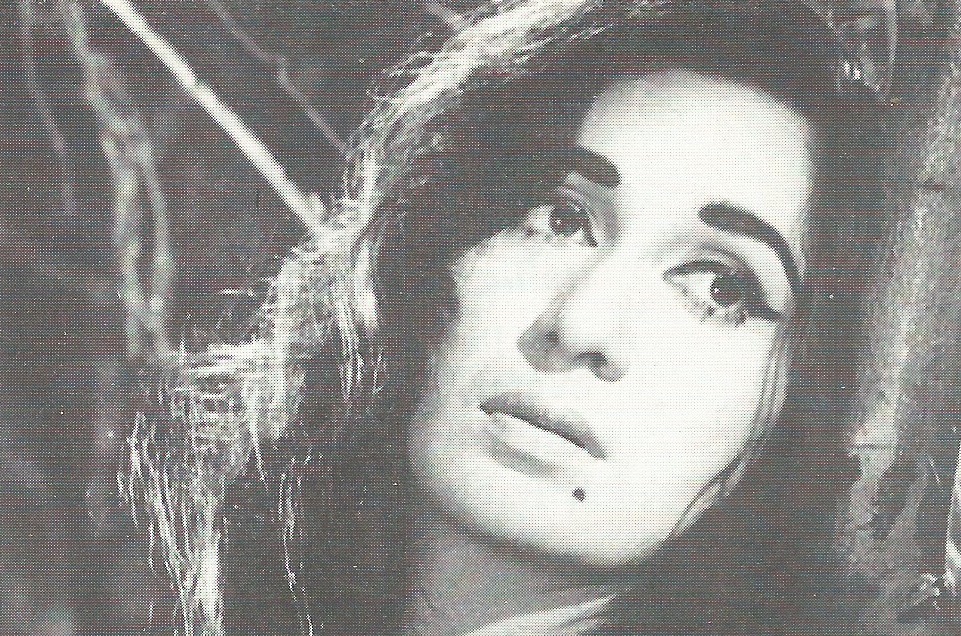Nayyar Sultana is unanimously regarded as one of the best actresses ever in the history of Pakistani cinema by Pakistani cinema historians and termed what you call a ‘class act.’ Unlike many of the other actresses of the Pakistani film industry, Sultana, known as the ‘queen of emotions’, was an educated woman, who came from a respectable family and more often than not, gave much depth and dignity to all her films, almost always lifting them a notch or two by her sheer presence alone.
Sultana was born Tayyaba Bano in Aligarh in Uttar Pradesh in 1937 and studied at the school of the Women’s College of Aligarh Muslim University. At the time of the Partition of India, her family decided to migrate to Karachi. While visiting Lahore from there, she met director Anwar Kamal Pasha, who was married to her relative and heroine of the 1940s, Shamim, who convinced her to try out a career in films.
Sultana made her screen debut in a supporting role in Qatil (1955) with the screen name of Nazli. The film did not do much for her and she first made a mark and made people take notice of her when she played a prostitute with the heart-of-gold, who sacrifices her life so that the lead pair – Sabiha Khanum and Santosh Kumar – could live happily ever after in Saat Lakh (1957). By this time, she had taken on the screen name of Nayyar Sultana. Though extremely awkward in the dancing sequences, she did showcase her fine acting skills in her emotional and dramatic scenes in the film and went on to win the Nigar Award for Best Supporting Actress for the same.
Following the huge success of Aadmi (1958), Sultana finally broke through as a top A-heroine with Saheli (1960). The film, a love triangle dealing with friendship and sacrifice and co-starring Darpan (in a double role), Bahar Begum, Aslam Pervez and Shamim Ara, was a huge box office success. Directed by SM Yusuf, the songs composed by A Hameed are hummed till today, in particular, Hum Bhool Gaye Har Baat Magar Tera Pyar Nahin Bhoole, beautifully sung by Naseem Begum and performed by Sultana ‘playing’ the piano. In fact, such was the popularity of the song down the years that Sawan Kumar Tak ‘used’ it in Souten Ki Beti (1992) filming it on Rekha. Even though the Indian version is sung by Lata Mangeshkar, it failed to make the same impact as the original! Saheli also won Sultana the Nigar Award for Best Actress of the year.
Sultana would win a second Nigar Best Actress award for Aulad (1962), one of her most memorable films and where she was again directed by Yusuf. In fact, the early 1960s were Sultana’s golden years as an actress as she not only received much critical acclaim for her fine performances but her films like Surraiya (1961) and Mehtab (1962) also scored heavily at the box office.
Unlike other loud performances that were prevalent in Pakistani cinema then, Sultana often rose above the hackneyed stereotypical scripts she was given and came out with mature, restrained performances that, more often than not, satisfied both, the critics and audiences. Perhaps her best ever performance came in Baji (1963) where she plays a woman who falls for a younger man with tragic results. However, in spite of a fine musical score including the Noor Jehan gems Dil Ke Afsane Nigahon Ki Zuban Tak Pahunche and Ab Yahan Koi Nahin, beautifully composed by Salim-Iqbal, the film disappointed at the box office. As did Dulhan (1963) though she reunited with her hugely successful Saheli team of SM Yusuf, Shamim Ara and Darpan. Baji did win at the Nigar Awards as the Best Film of the year though.
Meanwhile on the personal front, Sultana fell in love and married her co-star of many a film, Darpan, taking time off thereafter to concentrate on her family life. Sadly though, her comeback to films in the late 1960s did not work as in spite of some typically fine performances from her, her films like Eik Musafir Eik Haseena (1968), Meri Bhabhi (1969), Hamjoli (1970) and Azmat (1973) all flopped one-by-one at the box office.
Undeterred, Sultana gracefully moved into character roles and continued to prove that as an actress, she was matchless. She is by far the best performer in Umrao Jaan Ada (1972) as Khanum, effortlessly steeling the film from Rani playing the title role and ‘suffers’ nobly enough in Ek Gunah aur Sahi (1975), leaving her mark on the film even if Ek Gunah Aur Sahi is totally dominated by Sabiha Khanum’s absolutely rivetting act as ‘Mummy.’
Darpan’s death in 1981 was a shattering blow for Nayyar and she herself passed away on October 27, 1992 due to cancer.


